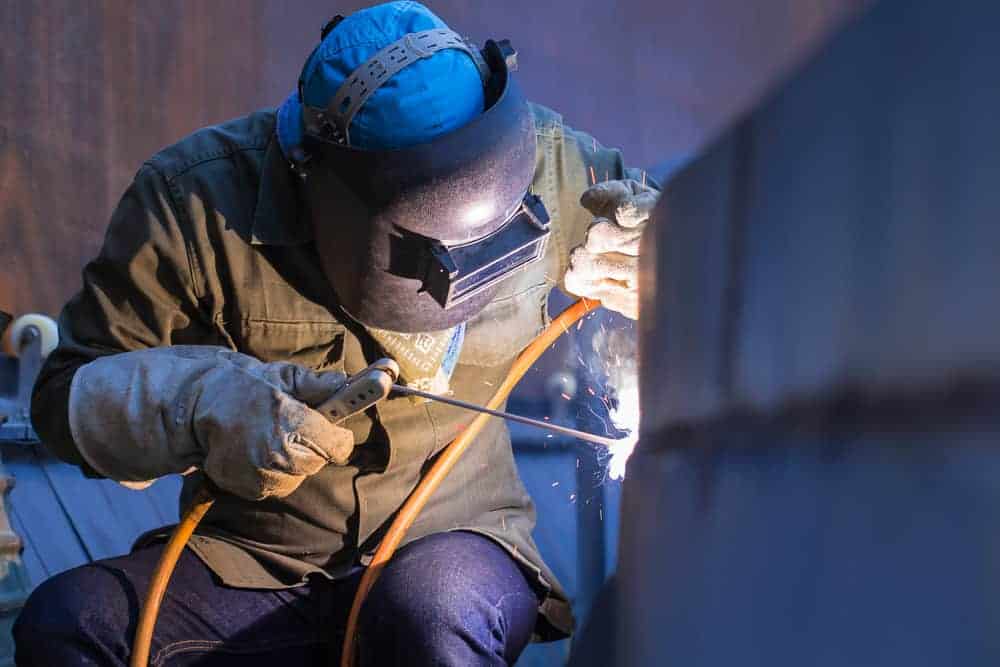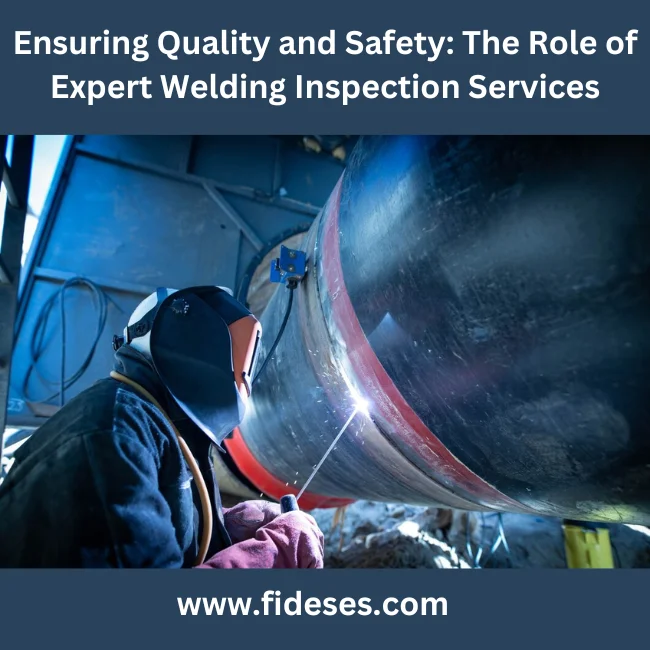The Influence of Rigorous Welding Assessment on Industry Criteria: Promoting Safety And Security, Dependability, and Compliance Throughout Different Sectors
The role of rigorous welding inspection is significantly identified as an important component in boosting sector criteria, where reliability, compliance, and safety take precedence throughout diverse markets. What improvements might we anticipate in welding approaches as the demand for quality and safety and security intensifies?
Importance of Welding Evaluations
Recognizing the critical duty of welding evaluations in maintaining top quality and safety standards, sector specialists focus on these examinations to make sure architectural stability. Welding evaluations offer as a crucial checkpoint in the construction process, determining defects that could jeopardize the resilience and safety of bonded frameworks. By systematically examining welds, inspectors can identify issues such as incomplete infiltration, porosity, and splits, which may not be noticeable to the naked eye.
The importance of these assessments expands beyond plain compliance; they are important for guarding lives and protecting financial investments. In important industries such as aerospace, production, and building, a single defective weld can cause devastating failings, causing both economic loss and human casualties. Applying rigorous inspection protocols mitigates these threats and boosts total task integrity.
Additionally, constant welding assessments promote a culture of top quality across companies, urging welders to stick to best practices and keep high criteria in their work. This dedication to high quality not only improves operational effectiveness however also reinforces the credibility of business within their respective sectors. Hence, welding inspections are important in promoting safety and security, integrity, and compliance throughout numerous industries.
Secret Market Standards and Laws
The framework of welding examinations is underpinned by a robust set of market standards and laws that regulate practices throughout different fields. Key institutions, such as the American Welding Culture (AWS) and the International Organization for Standardization (ISO), develop standards that guarantee top quality and security in welding procedures. For example, AWS D1.1 describes important needs for welding steel structures, while ISO 3834 defines high quality needs for fusion welding.
Along with these details requirements, market guidelines like the American National Requirement Institute (ANSI) and Occupational Security and Health Administration (OSHA) mandates further boost compliance by establishing safety and security protocols and operational ideal techniques. These laws are crucial in sectors such as aerospace, production, and building, where welding stability is critical.
Additionally, sector-specific requirements, such as those from the American Society of Mechanical Engineers (ASME) for stress vessels, give added layers of examination to guarantee that welds fulfill rigorous safety and security and performance criteria. Adherence to these standards not only facilitates governing conformity however additionally promotes a society of top quality and reliability across the welding sector, ultimately safeguarding public welfare and enhancing functional efficiency.

Advantages of Conformity and Dependability
Regularly sticking to industry criteria and guidelines in welding inspections yields considerable benefits, boosting overall reliability and performance. The foremost benefit is the assurance of top quality in bonded joints, which straight adds to the security of structures and tools. Compliance with established standards lessens the risk of failing and devastating occurrences, thus protecting both human life and useful assets.
Additionally, organizations that focus on rigorous welding assessments foster a culture of liability and professionalism. This dedication not only strengthens the online reputation of the business yet also instills confidence in clients and stakeholders pertaining to the integrity of services and products. Reliable welding processes lead to minimized expenses associated with rework, fixings, and potential legal responsibilities coming from poor workmanship.
Additionally, preserving compliance with sector criteria facilitates smoother regulative interactions, as companies can readily demonstrate adherence to needed methods (Welding Inspection Gilbert Arizona). This proactive strategy can cause beneficial collaborations and chances within the market, in addition to access to brand-new markets
Challenges in Welding Evaluation
Navigating the intricacies of welding inspection presents a myriad of obstacles that can hinder conformity with industry criteria. The absence of standardized training for examiners can result in varied interpretations of evaluation standards, which may endanger safety and integrity.
One more obstacle hinges on the access of innovative assessment tools - Welding Inspection Gilbert Arizona. While innovations such as ultrasonic screening and radiography can enhance detection abilities, their execution may be restricted by expense or schedule, especially in smaller operations. This variation can bring about a reliance on much less reliable inspection techniques, raising the risk of unnoticed flaws
Furthermore, the busy nature of modern production usually pressures examiners to focus on speed over thoroughness, possibly overlooking important visit the site issues. Regulative conformity can be discouraging due to the developing nature of sector requirements, leaving organizations having a hard time to maintain up with the most recent needs. These obstacles require continuous improvement in evaluation methods to make sure the integrity of welded frameworks throughout different fields.
Future Trends in Welding Practices
Emerging innovations and advancing techniques are readied to change welding methods in the coming years. Innovations in automation, such as robot welding visit site systems, are getting traction, enhancing accuracy and performance while lessening human mistake. These systems will not just accelerate production yet likewise facilitate consistent quality assurance, resolving several of the difficulties dealt with in hands-on welding.
Additionally, the integration of expert system (AI) and equipment understanding into welding processes is poised to change assessment and monitoring. Real-time information analytics will make it possible for anticipating maintenance, permitting proactive interventions that reduce downtime and rise security. Boosted reality (AR) and online reality (VR) modern technologies are ending up being crucial in training welders, offering immersive experiences that improve skill growth without the risks connected with standard techniques.
Sustainability is also an essential fad, as industries seek greener techniques. The adoption of green products and approaches, together with energy-efficient equipment, will likely come to be typical. As sectors adapt to these adjustments, the focus will change towards better conformity with safety and environmental regulations, making certain that welding techniques not just meet existing requirements yet additionally lead the way for a much safer and even more lasting future.

Conclusion
In final thought, strenuous welding assessments considerably improve market criteria by making sure security, integrity, and compliance across numerous industries. By methodically identifying defects and sticking to developed standards, these examinations minimize threats connected with structural failures. The promotion of responsibility amongst welders brings about greater top quality results, promoting trust fund within areas. As sectors proceed to focus on operational stability, the value of thorough evaluations will only raise, inevitably benefiting organizations and culture at big.
The function of strenuous welding assessment is increasingly identified as a crucial part in improving industry requirements, where compliance, security, and reliability take priority across varied sectors. Hence, welding assessments are important in advertising security, dependability, and conformity throughout numerous industries.
Secret institutions, such as the American Welding Culture (AWS) and the International Organization for Standardization (ISO), establish guidelines that make certain quality and directory security in welding procedures. AWS D1.1 outlines crucial needs for welding steel structures, while ISO 3834 specifies quality demands for blend welding.
In conclusion, extensive welding inspections significantly improve industry criteria by making certain safety and security, dependability, and conformity throughout different industries.